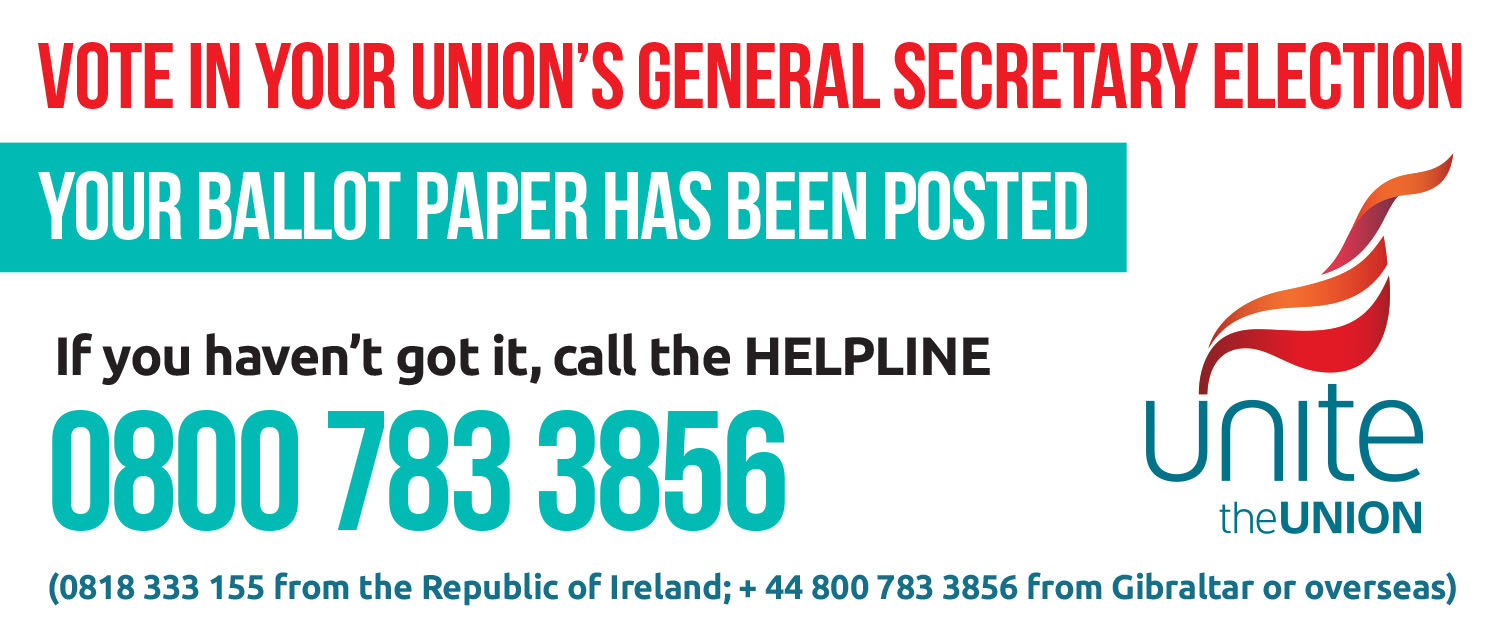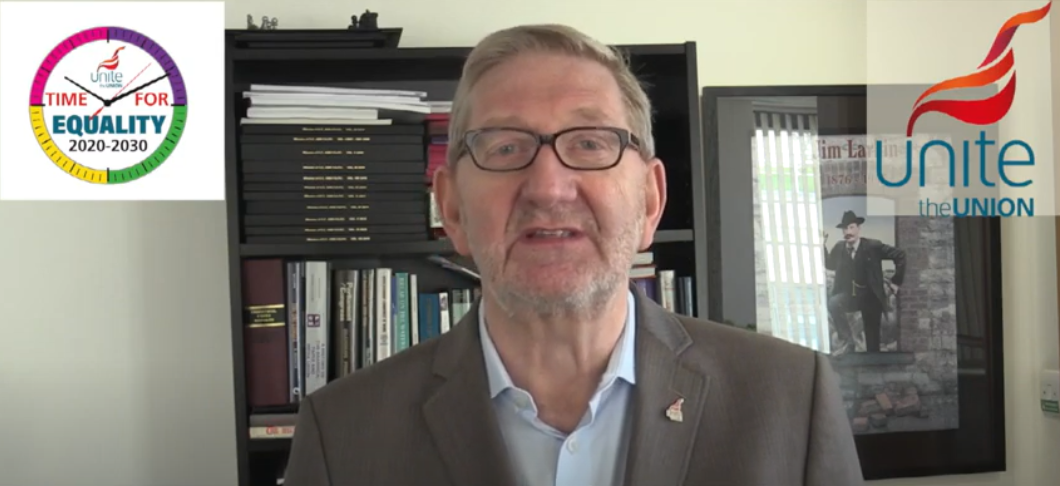Vote for hope and solidarity
A vote to remain in the EU must be seen as a vote for a return to its original mission of solidarity and hope. It must not be taken as a thumbs up for the finance-first status quo which has brought misery to ordinary people and betrayed the ideals of Europe Unite general secretary Len McCluskey said last night (March 9).
McCluskey warned that it will be difficult to enthuse Unite’s 1.4m members, bruised by attacks on their union and enduring near decade-long drops in their living standards, to vote for a prime minister whose vision of Europe is one where business knows no boundaries and workers’ rights are removed.
But, he said that life outside of the EU will be worse for UK working people, left to the mercy of a governing Conservative party wedded to unrelenting cuts which has made it its mission to destroy lawful trade unions.
Confirming his personal support for a remain vote, he called for an end to the `eye-watering’ austerity that has caused the people to break faith with the European project.
He said, too, that public disillusionment with the EU project grew when banks were prioritised while sovereign states were reduced to â€beggary’ by debt prepayment. It deepened when David Cameron enjoyed assistance in his bid to appease his backbench MPs, yet migrants in great distress are being denied a basic humanitarian response to their plight.
McCluskey made his remarks to an audience gathered by the German Ambassador at his London residency, where he was joined by his counterpart in the German union the IG BCE (the union for the mining, chemical and energy industries) and president of IndustriALL European , Michael Vassiliadis.
“I’m a supporter of the European Union but when I vote for Britain to remain in the EU in June, I will not be voting for the status quo – let me be clear about that,” McCluskey said. “I will not be voting for the EU which has sought to impose eye-watering austerity, at the expense of the ordinary citizen not the rich, but on Ireland, Greece, Spain, Portugal and elsewhere.
“I will not be voting for the EU which is seeking to stitch-up a pro-big business trade deal – TTIP – behind the backs of the people of Europe.
“Above all, I will not be voting for David Cameron’s renegotiation package – a deal designed to protect the financial interests in the City of London which control the Conservative Party and to pander to anti-migrant and anti-welfare sentiment. It is disappointing to see how eager European governments were to accommodate him, in stark contrast to the reception given to premier Tsipras of Greece last year.”
Trade union members
Turning to the role of the Conservative party in the debate, McCluskey said that it will be difficult to convince the nation’s six million trade union members that a party leader who expended much of his first term trying to destroy their unions deserves their support in the referendum.
“Since their election, the Tories have introduced one proposal after another to further weaken and undermine the trade unions, and to starve the Labour party of its traditional source of funding,” he argued. “Now they need assistance from the movement they wish to destroy.
“Tempting as it is to make the most of a situation like this, it falls to us in the labour movement to behave in a more statesmanlike way, and to look at the bigger issues,” McCluskey went on to say. “Nevertheless, make no mistake, persuading Unite members to vote for a campaign led by such an overtly hostile and anti-democratic government will be a challenge.”
Returning to his theme of the EU needing to renew its compact with the people, McCluskey warned that Cameron’s vision for the EU is out of step with that of the people.
“Cameron’s calls in recent years for UK exclusion from the full range of EU employment and social laws have created the belief among ordinary people that the European Union is a big business club,” he said. “Cameron’s Europe will never make the British heart beat faster.
“To win, we need hope too. For eight years now Europe has been in a tunnel marked austerity, everything subordinated to righting the finance-first system that capsized in 2008.
“A Europe freed from the rule of the accountant that can speak to the hope of a better life for all – now, that’s a Europe worth voting for.
“It’s time now to show the people a way out, for Europe to speak as one voice for growth, for investment and for protection for the weakest,” McCluskey added. “For a Europe that says it’s more important for young people to get their future back than it is for bankers to get their money back.
“Where are the politicians of such vision in Europe today, who can make Europe seem like a cause, rather than a cash register?
“Because I believe such a Europe is possible, and that it is the sort of Europe millions of people want, I will argue that Britain needs to be in the EU to help bring it about.”
Roots
McCluskey argued that the successful future of the EU lies in remembering its roots.
“Given the chance, I believe the people of today’s European Union would choose the ethos of investment, of modern economic reconstruction and the principles on which it was founded.
“But what principle is being upheld when Greece’s health service is pushed into ruin, when a generation is reduced to beggary in order to ensure that banks are repaid on time? It certainly isn’t solidarity.
“Likewise, can any European – any human indeed – be happy at Europe’s handling of the refugee crisis?” McClsukey noted. “It’s appropriate to congratulate Angela Merkel for having showed far more humanitarian consideration than most EU governments, including our own. Leaving wretched people to drown, or be gassed by police as we have seen at Calais last week, betrays every ideal for which Europe is supposed to stand.
“Leaving the European Union will not develop solidarity one bit – rather it will speed up the rush to beggar-my-neighbour economics and anti-refugee brutality.
“The EU referendum campaign is an opportunity to make the case for a broader and deeper solidarity across our continent.
“Without that solidarity, Europe can only fragment.”
So to summarise, Unite is a pro-EU union. It believes the union’s members have benefited from the jobs, rights and solidarity that EU membership has brought working people. However (at the time of publication), the union’s Executive Council has yet to discuss the EU referendum and the union’s approach to that campaign. It will do so when it meets in the week of March 14.
 Like
Like Follow
Follow


